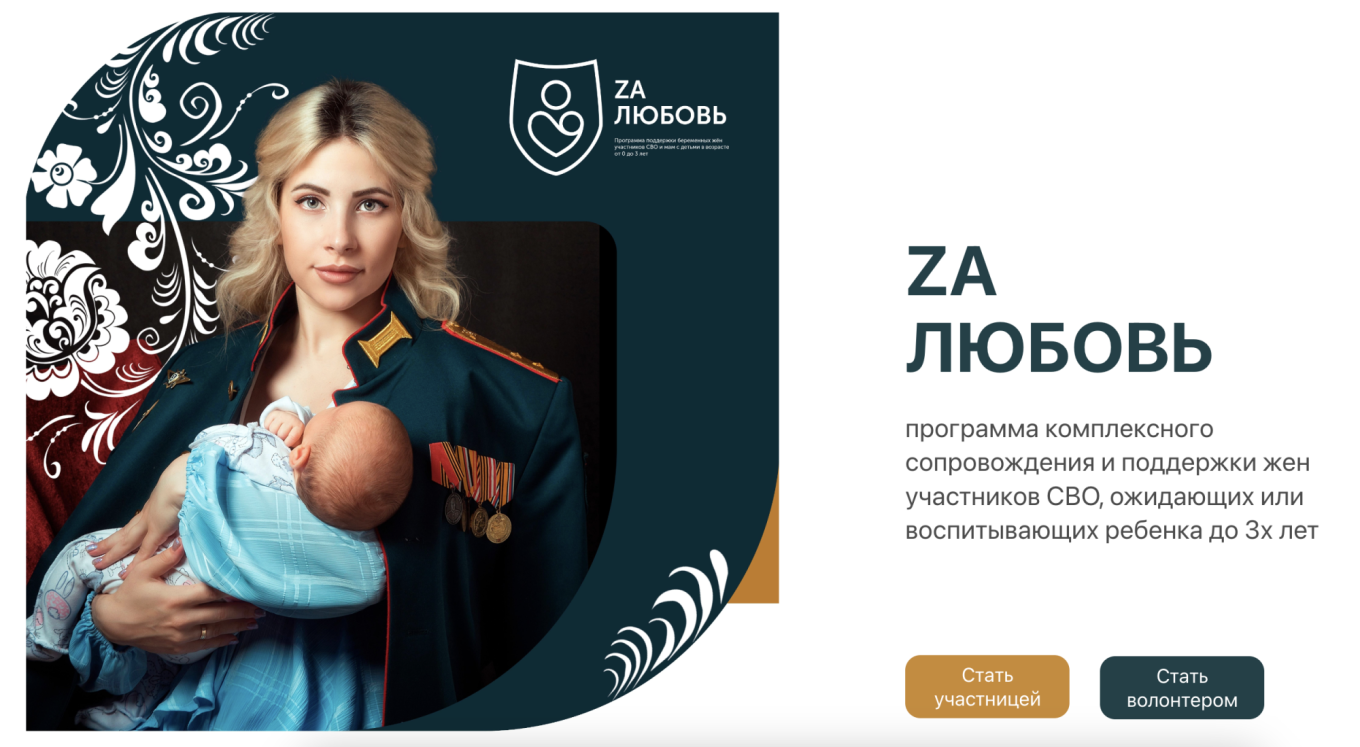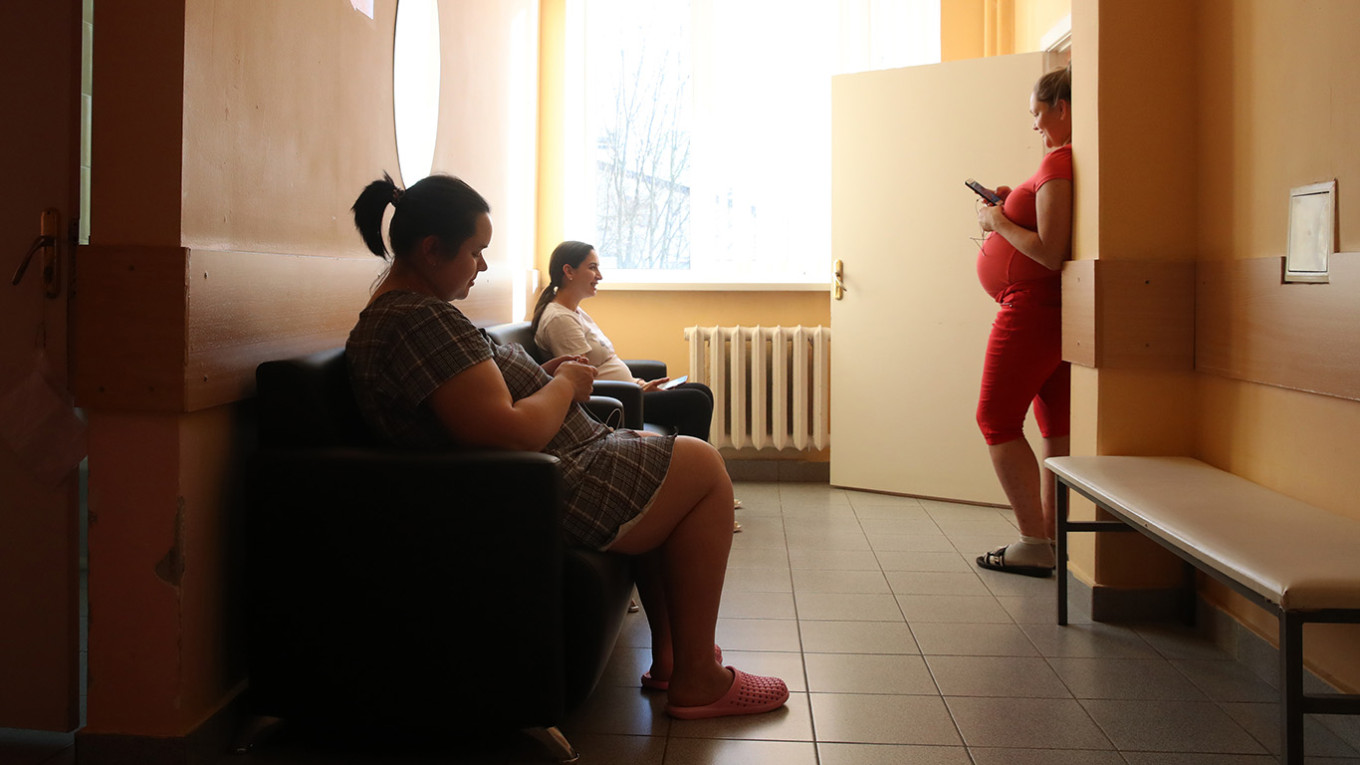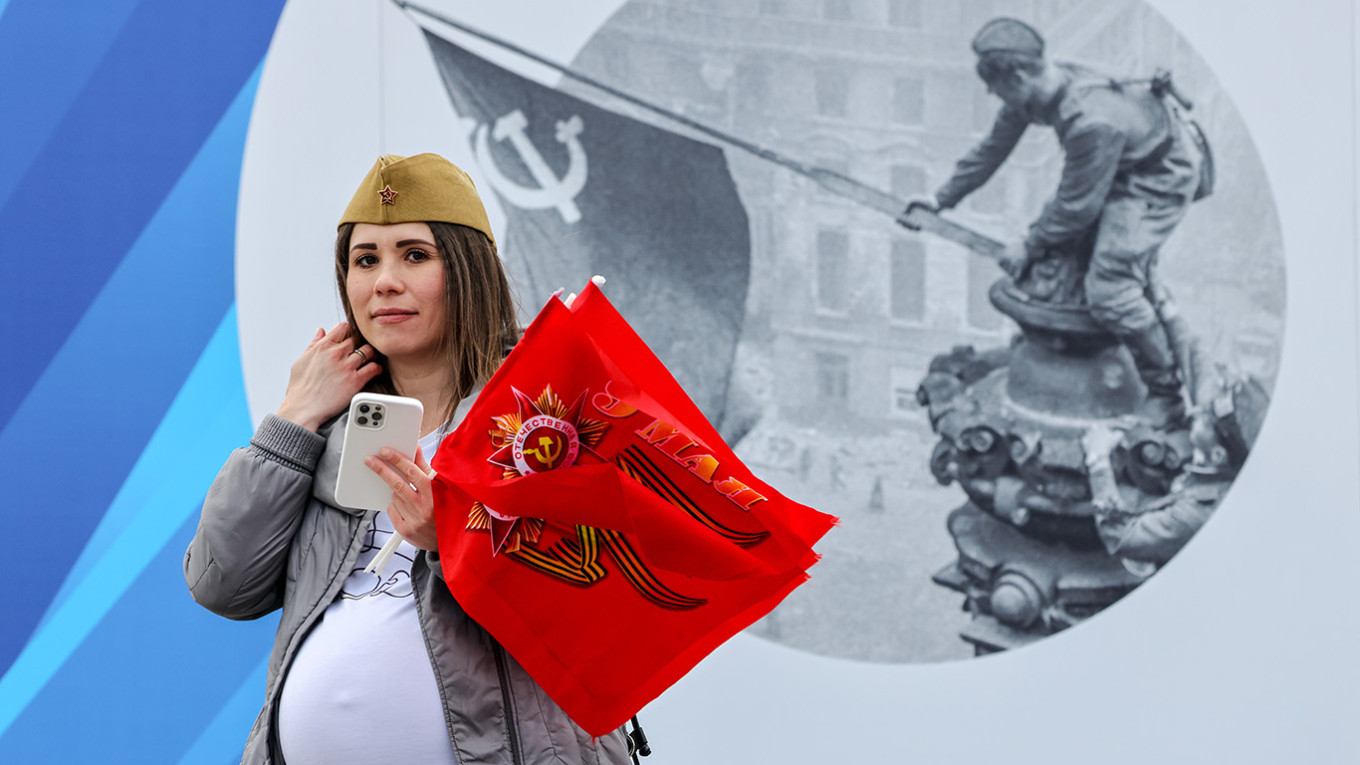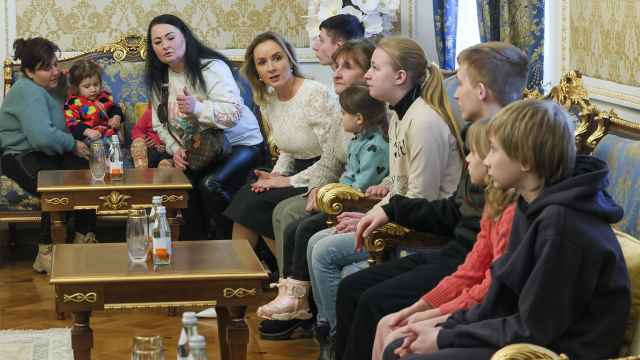“Hello, my name is Eva! Today is my birthday! And my dad is a hero, but I will never meet him,” reads a message, written on behalf of a newborn baby, that was published by the To Be a Mom movement in Russia’s Samara region.
Eva’s father was killed in the war against Ukraine.
To Be a Mom is one of a growing number of initiatives across Russia that are encouraging the pregnant wives of soldiers to carry their pregnancies to term, even as the fathers might never return from the front.
They are emerging as Russian authorities tighten restrictions on abortion and urge women to have more children, part of a broader push to address the country’s demographic crisis and promote the Kremlin’s vision of “traditional family values.”
The Russian government has stepped up its support for military families in the fourth year of its full-scale war on Ukraine. In 2025 alone, the Presidential Grants Foundation spent about 16 million rubles ($195,000) on projects related to soldiers’ wives, The Moscow Times has calculated.
This spring, To Be a Mom received nearly 3 million rubles ($38,000) from the Presidential Grants Foundation for its Za lyubov (“For Love”) program, which supports the pregnant wives of soldiers.
At the Za lyubov program’s launch event, wives and widows of soldiers spoke to pregnant women.
One woman, Oksana, shared that she learned her husband had gone missing in action while she was already in the maternity ward.
Another speaker, Olga, recalled giving birth to her daughter shortly after her husband’s funeral.
“This project is meant to smooth over and gloss the dramatic consequences that war brings to family relationships and to women’s roles,” gender researcher Sasha Talaver told The Moscow Times.
“In the Russian system, dealing with the aftermath of war, whether it’s a husband’s PTSD or the absence of a father, falls on women. She has to build the bond with the child, and she has to learn how to communicate properly with her husband,” Talaver said.
The project was organized by Yekaterina Kolotovkina, the wife of a general from Samara. In the first year of the invasion, she was awarded the “Putin’s Team” medal, a symbol of recognition to the president's supporters, for her pro-war activism. She has since said she hopes to expand the initiative nationwide.
“The best continuation of our heroes is their children. And it is our sacred duty to do everything to ensure this continuation is worthy,” Kolotovkina said in June.

The Za lyubov project website’s homepage features an AI-generated image of a woman from Samara wearing a military jacket and holding an infant.
One of its stated goals is to “solve demographic problems,” likely referring to regional and national concerns. Earlier this year, the death rate in the Samara region was double the birth rate.
To take part in the project, soldiers’ wives must submit proof of their husband’s involvement in the war and indicate their stage of pregnancy. The initiative offers psychological counseling, sessions on the joys of motherhood and maternity ward discharge celebrations complete with photoshoots.
“Eight babies have been born in two months through our program. Of these, three will never see their fathers,” Kolotovkina said in an interview. She previously backed the idea of creating a nationwide sperm bank for participants in the war against Ukraine.

In other cases, the program brings in priests and psychologists to discuss the importance of motherhood and giving birth while the husband is at war.
In the Far North, the Salekhard Diocese and the local women’s health clinic in the city of Noyabrsk launched a similar initiative called Motherhood from the Moment of Conception.
Among other activities, the project encourages pregnant women to write a letter to their husband at the front from the perspective of their unborn child.
Organizers say this “letter to dad” is meant to foster a sense of connection between the baby and the absent father, and to create “a sense of the father’s presence at a distance.”
Psychologist Nadezhda Fesenko, who coordinates the Noyabrsk project, says many of the pregnant women she sees are experiencing “a re-evaluation of values” in the invasion’s fourth year.
“Women came to me and shared the reasons why they’re considering an abortion: ‘I’m afraid of being left alone,’ or ‘My husband might leave [for the war].’ But now, families are beginning to understand that every life is valuable,” Fesenko says.
“Paradoxically, the special military operation played a significant role [in discouraging abortions]. Because in Russia, it has always been a question of mentality: What is it for? Our husbands and sons go there for life, to preserve life,” Fesenko continues, reflecting on the war in Ukraine.
Still, the fear of losing one’s husband remains a major concern among military wives on online forums.
“I’m so afraid. I’m afraid for him, I’m afraid for the pregnancy, I’m afraid the baby will come early. I have no strength left,” a woman named Kristina writes on a pregnancy forum.
On the same forum, Katerina from Rybinsk addresses other women: “My husband died in the SVO [special military operation], and I’m pregnant. I really wanted a second baby, and he wanted and dreamed of this too. And now… How do I cope, where do I find strength?”
Pro-war activists also co-opt the Russian Orthodox faith to try to ease women’s fears. As part of the Motherhood from the Moment of Conception project, organizers promise women a personal blessing for childbirth.
“It’s not so scary together! Faith gives strength,” states the project’s presentation.
When women are discharged from the maternity ward, a local deacon presents them with an icon, and psychologist Fesenko accompanies the family.
“Pregnancy is a new rebirth. A woman is born again. The feeling of fear is a natural state for her; it just needs to be understood,” says Fesenko.
Fesenko, who says she believes that abortion is murder and that motherhood is a woman’s true calling, runs anti-abortion campaigns focused on building trust through informal activities like tea gatherings.
According to Talaver, the state often uses restrictive methods when it comes to women’s reproductive rights.
“At the same time, Russia introduces benefits and allowances for families [including military families], and this is also a form of control,” Talaver said.
A Message from The Moscow Times:
Dear readers,
We are facing unprecedented challenges. Russia's Prosecutor General's Office has designated The Moscow Times as an "undesirable" organization, criminalizing our work and putting our staff at risk of prosecution. This follows our earlier unjust labeling as a "foreign agent."
These actions are direct attempts to silence independent journalism in Russia. The authorities claim our work "discredits the decisions of the Russian leadership." We see things differently: we strive to provide accurate, unbiased reporting on Russia.
We, the journalists of The Moscow Times, refuse to be silenced. But to continue our work, we need your help.
Your support, no matter how small, makes a world of difference. If you can, please support us monthly starting from just $2. It's quick to set up, and every contribution makes a significant impact.
By supporting The Moscow Times, you're defending open, independent journalism in the face of repression. Thank you for standing with us.
Remind me later.






